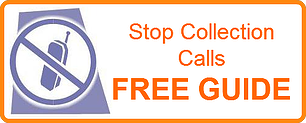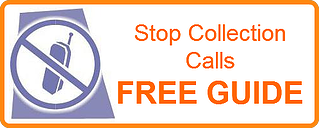I came accross this video today and my jaw hit the floor. Here at Debt Relief, we get calls every day from people who have been threatened by their creditors. Unfortunately, fraudulent debt collection practices happen all of the time, but you DON'T have to take it!
The Fair Debt Collection Practices Act, FDCPA, dictates how debt collectors can act when collecting a debt from you. These are things a debt collector can't do. Here is a list of 15 FDCPA Violations to watch out for:
-
Ask you to pay more than you owe - The collector cannot misrepresent the amount you owe.
-
Ask you to pay interest, fees, or expenses that are not allowed by law -The collector can't add on any extra fees that your original credit or loan agreement doesn't allow.
-
Call repeatedly or continuously - The FDCPA considers repeat calls as harassment.
-
Use obscene, profane, or abusive language - Using this kind of language is considered harassment.
-
Call before 8:00 am or after 9:00 pm - Calls during these times are considered harassment.
-
Call at times the collector knew or should know are inconvenient - Calls at these times are considered harassment.
-
Use or threaten to use violence if you don't pay the debt - Collectors can't threaten violence against you.
-
Threaten action they cannot or will not take - Collectors can't threaten to sue or file charges against you, garnish wages, take property, cause job loss, or ruin your credit when the collector cannot or does not intend to take the action.
-
Illegally inform a third party about your alleged debt - Unless you have expressly given permision, collectors are not allowed to inform anyone about your debt except:
- your attorney
- the creditor
- the creditor's attorney
- a credit reporting agency
- your spouse
- your parent (if you are a minor)
-
Repeatedly call a third party to get your location information - The collector can only contact a third party once unless it has reason to believe the information previously provided is false.
-
Contact you at work knowing your employer doesn't approve - A collector is not allowed to contact you at work if you’ve let them know your employer doesn’t approve of these calls.
-
Fail to send a written debt validation notice - Within five days of the collector's initial communication, it must send you a notice include the amount of the debt, name of the creditor, and notice of your right to dispute the debt within 30 days.
-
Ignore your written request to verify the debt and continue to collect - A collector can't continue to collect on a debt after you've made a written request to verify the debt as long as the request was made within 30 days of the collector's written notice.
-
Continue to collect on the debt before providing verification - After receiving your written dispute, the collector must stop collecting on the debt until you have receieved verification.
-
Continue collection attempts after receiving a cease communication notice - If you make a written request for the collector to cease communication, it can only contact you one more time, via mail to let you know one of the following: that further efforts to collect the debt are terminated, that certain actions may be taken by the collector, or that the collector is definitely going to take certain actions.
Steps to take if a debt collector violates FDCPA
If it is found that a debt collector has violated FDCPA norms, you have every right to legally penalize the debt collector in a state court or a federal court. You can sue a debt collector within one year from the time he violated FDCPA rules.
If you win the lawsuit, you can make claims for recovering damages you suffered due to debt collectors. In addition to this, you can also make claims amounting to USD$1,000.00. Attorney fees and court costs can also be recovered from the debt collectors if it is found that they have violated the FDCPA guidelines.








